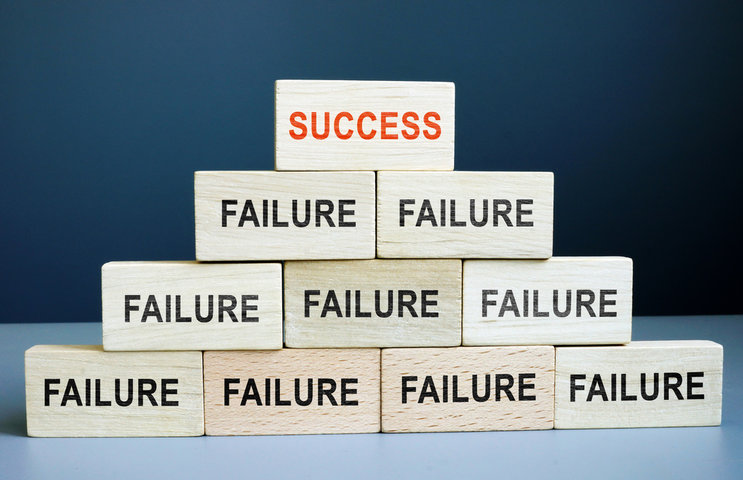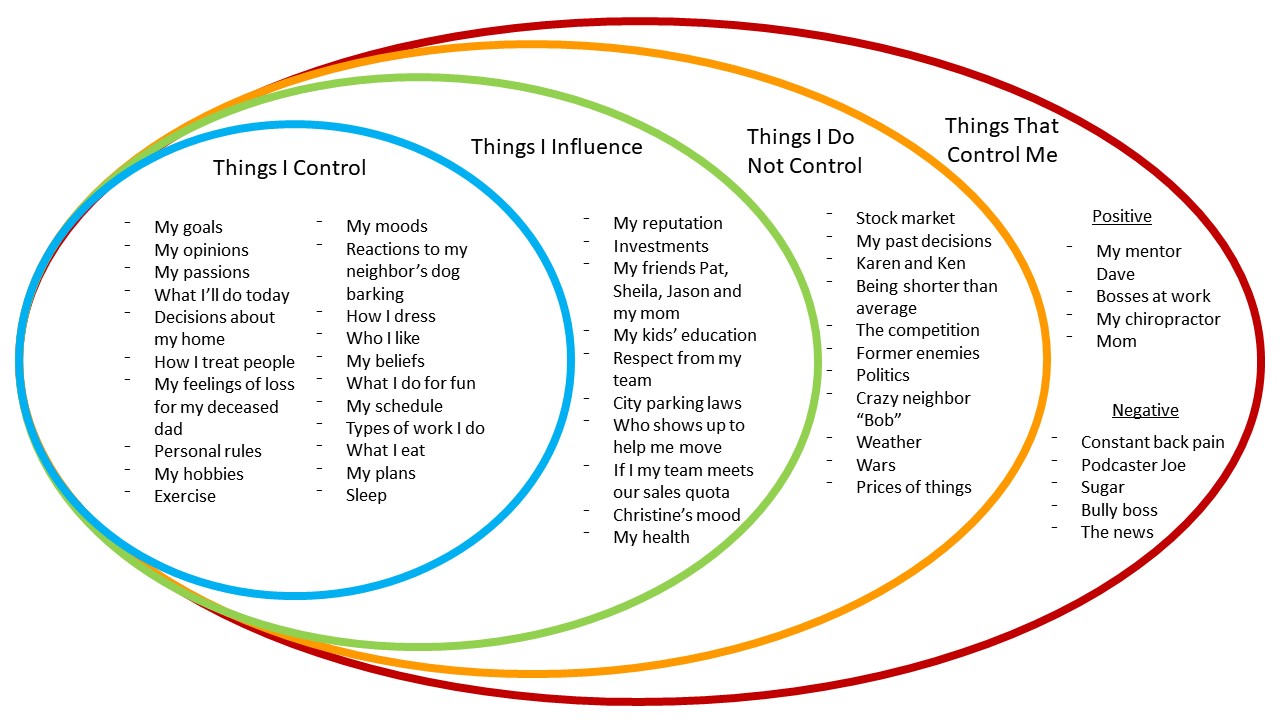10 Self-Discipline Habits
Self-discipline does not need to be intense, serious or painful.
It’s how smart people win.
You can boost your self-discipline with any of the 10 habits below. Pick one and give it a try. If it works for you, use it again and again.
Top 10 Benefits of More Self-Discipline
1. You get more done in less time.
For example, you finish work early and go for a beautiful drive while others are still in meetings.
2. You bounce back quickly from rejection, failure, or setbacks.
For example, you get turned down, adjust your approach and try again with no negative emotion.
3. You take better control of your urges, emotions and reactions.
For example, you spend your evenings working on your skills or side business instead of watching TV.
4. You finish what you start.
For example, you dive into a tax report and refuse to surface until it’s done.
5. You feel strong and healthy—mentally and physically.
For example, you stick to your newest fitness plan without difficulty.
6. You experience less guilt, self-criticism, and regret.
For instance, you go to bed feeling proud instead of replaying your mistakes.
7. You earn more—and keep more of your money.
For example, you stop impulse buying and actually build your savings.
8. You replace harmful habits with valuable ones.
For example, you stop being a news or social media junkie and spend more time improving yourself.
9. You feel more pride, confidence, and self-respect.
You look in the mirror and really like who you see.
10. You enjoy greater freedom and long-term success.
For example, you launch a new business or start a new career without second-guessing yourself.
These Self-Discipline Habits start with the easiest ones first. Read the details for step-by-step instructions. Follow the steps to make the habits part of your life.
You may only need one or two of these habits to boost your success. Start using one today!
Habit #1: Focus on What You Want
 1. Can you see yourself succeeding?
1. Can you see yourself succeeding?
2. Do you use your imagination to your advantage?
3. Can you see how self-discipline gives you freedom and joy?
Click for Details
By forming this habit, you use the power of your imagination to quickly take control of yourself and accomplish more than you are now doing. It’s the easiest way to be more successful, starting right now.
Three Bad Habits You Might Have
- You imagine the worse. “If I don’t get this done, everyone will know I’m a loser.”
- You imagine excuses. “I can get out of this if I pretend to be sick today.”
- You focus on the hard parts. “The first hour is easy, but then it will feel like boring torture.”
One Good Habit You Need
Imagine the rewards of reaching your goal. Use the pleasure of these rewards to outweigh the pain and difficulty you face.
Let your vision of success motivate you and pull you forward like a lighthouse in the dark. Examples:
- “In my imagination I stop eating junk food and feel healthier. I lose weight and add at least five years to my life.”
- “I can see myself getting people to agree with me on everything. Everyone supports me which leads to some big wins!”
- “My goal is to save enough to stop working when I turn 50. I see how I can do this by earning twice as much as I make now and cut my spending down.”
Recommendations
- Pick one difficult task you need or want to do.
- List the rewards for finishing it. Keep writing until you feel excited to work on it.
- Jump onto the task. Keep these benefits and rewards in your mind.
- If you get stopped and need more self discipline, expand your list of rewards and benefits. And then try again.
Learn more ways to use the power of your imagination at “Unlock Your Imagination, Unlock Your Success.”
Habit #2: Break Big Goals into Small Steps

2. If you knew exactly how to reach any goal, what goal would get you excited?
3. Would you like to make some progress right now?
Click for Details
Let’s say you have a big goal that’s important for you to reach. But every time you think about it, your mind fogs up. You feel stuck, overwhelmed or confused.
Now what if you always knew what to do next. You could take immediate, small steps that add up to significant progress.
Instead of forcing yourself to work on a goal and burning yourself out, you happily make progress. This becomes your self-discipline habit.
Three Bad Habits
1. Making vague to-do lists like “Work on the big project” or “Fix everything by Sunday.”
2. Waiting for motivation to magically show up.
3. Obsessing over too many options. You try to find the perfect plan before taking a single step.
One Good Habit
Each time you get stuck on a project or goal, train yourself to choose one small, specific action step to do, right now.
For example, you want to launch a business—but it feels overwhelming. So instead of “Build my new brand,” you write: “Register my new website domain name.” You find it, pay the $16 fee and think, “Great! Finally! Now what?”
You pick another step and do it. And another. You are now making progress.
Take Action
- Write down a big goal, project or objective you want to accomplish.
- Pick one small physical action step that you can do.
- Do it right now, in the real world.
Try this simple “Self-Discipline Game” to help you form this important habit.
Habit #3: Make Failure Your Friend

2. If you could stay motivated, despite failure after failure, what would you accomplish?
3. Are you ready for better ways to keep yourself fired up?
Click for Details
You start strong. You’re fired up. And then something goes wrong and you are stopped.
You feel discouraged and tired. You get distracted. Your motivation is gone.
Now imagine this: You keep going. Even after several failures in a row you stay motivated. Eventually, you win.
Three Bad Habits
1. Quit whenever it gets hard.
2. Believe failure means you’re not good enough.
3. Let excuses pile up until your dream dies a quiet death.
One Good Habit
Whenever you feel stopped, turn that failure into fuel. Remember your purpose and fire it up.
Winners fail all the time, but they use failures to their advantage. They learn valuable lessons. They see better plans. They stir up more energy than before.
For example, you offer to buy a small business or a house. Your offer is low and aggressive. The seller not only rejects your offer, he says, “That’s really offensive. Don’t ever make any more offers. Go away!” You want to crawl under a rock. But instead, you ask, “Why do I want to buy that?”
You remember your purpose and you feel the fire again. You learn from your mistake, adjust your strategy and make an offer that makes the seller feel important. The seller laughs and says, “Sold!”
Keep your purpose fired up and treat each failure as a step on your path to success.
Take Action
- Think of a goal you gave up on—then write down why you wanted it.
- Rekindle that original purpose until it excites you again.
- Now take one bold step!
Failure isn’t your enemy—it’s your friendly guide to big wins.
Read “How to Motivate Yourself.”
Habit #4: Handle Distractions . . . Permanently

2. How would your life change if you could stay deeply focused whenever you wanted?
3. Are you ready to give 100% of your attention to the things that are important to you?
Click for Details
You start the day with good intentions without distractions. But then reality kicks in. You get a text. A phone call. A “quick” meeting. By the end of the day, you’ve been busy all day and accomplished nothing important.
Now imagine this: You stay focused. Even when things go sideways, you keep making progress. You feel productive, calm, and totally in control. That’s the power of ignoring distractions.
Three Bad Habits
1. Trying to multitask your way through chaos.
2. Letting every call, ping or problem steal your attention.
3. Dropping everything for every little issue.
One Good Habit
Get organized. Create a personal policy or system that blocks each distraction.
When you’re well-organized, distractions don’t throw you off—they bounce off you.
For example, your car won’t start, your coworker calls in sick, and your inbox is blowing up. Because you are already organized to deal with these distractions, you stay focused. You use your backup ride, assign the coworker’s urgent tasks to someone else, and handle your emails during lunch. You stay focused and productive.
Every time you organize yourself to handle one type of distraction, make it permanent, so it never distracts you again.
Take Action
- List the main distractions that regularly slow you down.
- For each, write a way to organize yourself so it no longer distracts you. You can now stay focused despite these distractions.
- Every time a new distraction gets in your way, organize!
The more organized you are, the less distracted you become.
Habit #5: Choose Your Battles

2. What would change if you only focused on things you can change?
3. Are you ready to stop fighting unwinnable battles?
Click for Details
Let’s say you’re frustrated. You argue with people who don’t agree with you. You try to fix others.
You get stressed about the news, the weather, the economy—things completely out of your control. And in the end, nothing changes.
Now imagine this: You feel calm, focused, and energized. You know exactly what’s worth your time—and you stop letting everything else run your life. You win because you pick your battles.
Three Bad Habits
1. Try to control things that are out of your zone of control.
2. Get emotionally pulled into other people’s problems or opinions.
3. Waste time on arguments, politics or drama that go nowhere.
One Good Habit
Figure out what you can actually control and then control it completely.
Influence the things you can influence, but don’t care if you control them.
Let everything else go.
For example, you want to get more work done, but your partner’s husband tries to undermine you. You try to control him with negative comments which only make things worse. You try to control your partner to ignore her husband, but she gets upset with you.
You finally realize you have no control over the husband and so you knock off your nasty comments and simply ignore him. You also realize you can only influence your partner, so you just offer her advice and encourage her to do well. You spend MOST of your time and effort working on what you CAN control: your goals, plans, choices, time, emotions, responsibility, priorities and, most of all, your productivity.
You win!
Take Action
- List three or more things that cause you stress.
- Decide which ones you can control and which ones you can influence.
- Take full control of the things you can actually control. Exert more influence on the things you can influence. Ignore ALL the rest.
That’s how disciplined people win.
Read: “The Four Circles of Control.”
Habit #6: Make Orderly Progress

2. What if steady, focused progress could give you control of your success?
3. Are you ready to stop jumping around and move forward with unstoppable power?
Click for Details
Nothing is going well. You admit to yourself that you are stuck. You try to jump ahead, skip steps, or chase quick wins—but nothing clicks.
Now imagine this: You make steady progress every day. You move forward with calm, patient control. No chaos. No rush. Just confident, powerful momentum. You win because your progress is orderly.
3 Bad Habits
1. Skip steps and hope everything works out.
2. Get overwhelmed by the big picture and freeze.
3. Quit too soon because success isn’t instant.
One Good Habit
Simply make orderly progress. Move forward with steady, organized action. Take one step after another.
For example, you want to master a valuable skill. You’re tempted to rush ahead, but instead you break it down. You learn the first piece, practice it and use it. You take the next piece of the skill, practice it and put it to use. Each step builds confidence.
One day, you realize you’ve become an expert. No burnout. No confusion. Just results.
You are disciplined and you win.
Take Action
- Pick one of your toughest objectives or projects.
- Focus on doing just one step in an orderly way. Continue making progress, one step at a time.
- Notice and celebrate your steady, daily results.
Habit #7: More Courage, Less Fear
1. When life gets hard, do you ever hide, avoid, or back down?
2. What would your life look like if you faced challenges like a hero?
3. Are you ready to act with courage despite feeling afraid?
Click for Details
You really want to achieve something, but something invisible stops you. You feel anxious. You procrastinate. You make excuses. Deep down, you’re just afraid.
Now imagine this fear is completely gone. You are fearless and move forward without doubt or hesitation. You win because you’re courageous.
3 Bad Habits
1. Avoid uncomfortable situations—even if they lead to your goals.
2. Pretend your fears don’t exist.
3. Let fear make your decisions for you.
One Good Habit
Face your fears head on.
Break them into small steps. Handle each one until the fear disappears. Then move on to the next.
For example, you want to negotiate big contracts, but you’re terrified of talking to groups of important, powerful people. So instead of avoiding these meetings, you break it down: practice discussing a contract with a friend, then casually chat with a big shot, then meet with a single important person, and so on. One step at a time, you handle the fear. You sign a big contract. You feel amazing.
Take Action
- Pick one fear you want to conquer.
- Break it down into its small parts.
- Face one small part today.
- Continue until you conquer the fear.
Courage is a valuable habit. Fearless success is your reward.
Read: “The Fear Problem.”
Habit #8: Work Harder

2. What if just working harder could change your whole life?
3. Are you willing to be a harder worker and unlock your true strength?
Click for Details
Everyone can work harder. More push, longer hours, more intensity, stiffer deadlines, greater dedication and so on. You have no choice.
Let’s say you feel stuck. You have big dreams but little progress. You start projects but never finish them. You wonder, “What’s wrong with me?”
So what if you can work with energy and focus. You finish tasks quickly. You feel proud and unstoppable. You win because you work harder than you have ever worked before.
3 Bad Habits
1. Make excuses like “I’ll work hard when I feel like it.”
2. Avoid effort because it seems too painful or boring.
3. Start slow and quit before you build momentum.
One Good Habit
Push yourself to work hard—especially when you don’t feel like it. Action creates energy. Hard work builds your confidence, income and future.
For example, you hate doing paperwork. It piles up and weighs on you. Instead of complaining or delaying, you dive in. You tell yourself, “I’ll work really hard for just 5 minutes.” You then discover, it was kind of fun, so you finish it all in record time. You feel strong, organized and powerful.
You have more self-discipline than ever.
Take Action
- Make a list of a few things you can work harder on.
- Pick one and jump on it! Work on it as hard as you can for at least five minutes.
- See if you can keep going with it. If not, plan to do it again tomorrow.
- Either way, pat yourself on the back for the increased effort. You are forming a powerful habit.
Every big success story includes hard work. You write your own story with this powerful habit.
Read: “Hard Work.”
Habit #9: Be Unreasonable, Accept No Excuses

2. What could you achieve if you stopped settling and started demanding more of yourself?
3. Are you ready to crush your excuses and boldly get what you really want?
Click for Details
If you do not make enough money, or your goals are out of reach, you might be listening to excuses. They may even sound like really good ones.
“It’s the economy.” “People just don’t listen to my correct opinions.” “You have to lie to make lots of money, and I’m just too honest.”
Of course, you have the power to not accept any excuses. You can change your mind to not justify failure. You stand up, take control, and make it go right. You win because you’re unreasonable—with yourself and with others.
3 Bad Habits
1. Accept excuses from others or yourself.
2. Justify weak results with “reasonable” explanations.
3. Let problems or failures go unchallenged.
One Good Habit
Reject all faulty explanations—no matter how “reasonable” they sound. Demand results. Insist on your success.
For example, you promised to finish a job, but didn’t. You say, “I was too tired.” Instead, you think, “That’s a weak excuse. I’ve done more on less sleep. I’ll finish it now, even if I stay up late.” You get it done and feel proud, not guilty.
Take Action
- Write down one area where you’re not winning.
- List your “reasons” and excuses. Notice how stupid they are and then cross them out.
- Decide to make it go right and take bold action with no excuses. Right now.
That’s how unreasonable, self-disciplined people reach success.
Read: “Why You Must Be Unreasonable.”
Habit #10: Be More Responsible

2. What if your results were 100% up to you from this point forward?
3. Are you ready to take total responsibility for your success?
Click for Details
Are other people to blame for your bad conditions? Your parents, your boss, your ex-spouse, your town, certain people, or something else? If so, you feel frustrated, helpless or even angry. But no matter how hard you blame them, nothing changes. You’re still stuck.
Now what if you stop blaming anyone. Instead, you own everything in your life—your past, your future, your problems. Suddenly, you feel powerful. Instead of waiting for someone else to fix things, you take charge and solve them yourself. You win because you take full responsibility.
3 Bad Habits
1. Blame others for your setbacks.
2. Wait for someone else to fix your problems.
3. Avoid responsibility at all costs.
One Good Habit
Take ownership of your life. See yourself as the cause of your successes and your failures. When you take responsibility, you gain the power to change everything.
For example, your business is losing money and you want to blame your lazy staff. But you stop yourself and ask, “How did I cause this?” You realize you never trained them properly. You roll up your sleeves and fix it.
Take Action
- Pick one of your difficult situations.
- Ask yourself, “How did I cause this?”
- Take ownership. Then take action.
This is why responsible people are the most self-determined, happiest and most successful people in the world.
Read: “The Power of Responsibility.”
Get a New Success Article Every Two Weeks
Get new ways to be happier, wealthier and more successful — straight to your inbox. Learn more.
Get Free Success Tips Every Two Weeks
Get new ways to be happier, wealthier and more successful — straight to your inbox. Learn more.













